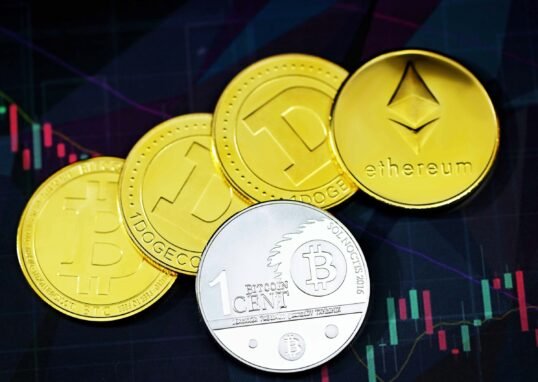
Bitcoin, the world’s first decentralized digital currency, has taken the financial world by storm since its inception in 2009. Created by an anonymous person or group of people using the pseudonym Satoshi Nakamoto, Bitcoin has revolutionized the way we think about money and investments. In this article, we will explore the history of Bitcoin, its benefits as an investment, and the different ways to trade this digital currency.
The Birth of Bitcoin
Bitcoin was introduced in a whitepaper titled “Bitcoin: A Peer-to-Peer Electronic Cash System” published by Nakamoto in October 2008. The following year, the Bitcoin network was launched, marking the beginning of a new era in digital finance.
Bitcoin was designed to address the flaws of traditional fiat currencies and the centralized banking system. It operates on a decentralized network called the blockchain, which ensures transparency, security, and immutability of transactions. Bitcoin’s limited supply of 21 million coins and its deflationary nature make it an attractive alternative to inflationary fiat currencies.
The Benefits of Investing in Bitcoin
Investing in Bitcoin offers several advantages:
1. Potential for High Returns
Bitcoin has experienced significant price appreciation over the years, with some early adopters becoming millionaires. While past performance is not indicative of future results, the potential for high returns has attracted many investors.
2. Diversification
Bitcoin provides an opportunity to diversify investment portfolios. Its low correlation with traditional assets, such as stocks and bonds, can help reduce overall portfolio risk.
3. Hedge against Inflation
Bitcoin’s limited supply and decentralized nature make it a potential hedge against inflation. As governments print more money, the value of fiat currencies may decrease, while the scarcity of Bitcoin may drive its value up.
4. Global Accessibility
Bitcoin is accessible to anyone with an internet connection, regardless of their location or financial status. This global accessibility allows for greater financial inclusion and the potential for cross-border transactions without the need for intermediaries.
Trading Bitcoin
There are several ways to trade Bitcoin, catering to different investment strategies and risk appetites:
1. Spot Trading
Spot trading involves buying or selling Bitcoin for immediate delivery at the current market price. This method is suitable for investors who want to own actual Bitcoin and hold it in a digital wallet.
2. Bitcoin Exchanges
Bitcoin exchanges act as intermediaries, facilitating the buying and selling of Bitcoin. These platforms provide a secure environment for trading and often offer additional features such as margin trading and advanced order types.
3. Bitcoin CFDs
Contracts for Difference (CFDs) allow investors to speculate on the price movements of Bitcoin without owning the underlying asset. CFDs offer leverage, enabling traders to amplify their potential profits or losses.
4. Bitcoin Futures
Bitcoin futures contracts allow investors to buy or sell Bitcoin at a predetermined price on a specific future date. Futures trading is popular among institutional investors and can provide opportunities for hedging and speculation.
5. Bitcoin ETFs
Exchange-Traded Funds (ETFs) are investment funds that track the price of Bitcoin. ETFs provide a convenient way for investors to gain exposure to Bitcoin without directly owning it.
It is important to note that trading Bitcoin involves risks, including price volatility and regulatory uncertainties. It is advisable to do thorough research, understand the risks involved, and consider consulting with a financial advisor before investing.
In Conclusion
Bitcoin has emerged as a groundbreaking digital currency and investment opportunity. Its decentralized nature, potential for high returns, and global accessibility have attracted investors from all walks of life. Whether you choose to invest in Bitcoin for its investment potential or to diversify your portfolio, it is crucial to stay informed and make well-informed decisions in this rapidly evolving market.



